What to do in Venice: Top 20 must-sees and must-dos
We’ve put together this guide for you! Yupwego accompanies you before and during your trip 🗺️
We’ve put together this guide for you! Yupwego accompanies you before and during your trip 🗺️
Wondering what to do in Venice in a week, 4 days or 1 weekend? We’ve put together this guide for you, to ensure you have an unforgettable trip. Inside this guide you’ll find all the must-sees of the “City of the Doges”.
Stretching some 5 kilometers from north to south, Venice is a labyrinth of canals and alleyways harboring countless hidden treasures.
Ah, Venice! Where every street corner whispers of ancient love stories and the peaceful waters invite you to daydream. Come and discover this magic for yourself.
Your online travel health insurance
Start your quotation now and obtain your medical insurance certificate, which insures medical expenses according to the country’s needs.
Before you head off to the various places we’ll mention in this article, you can find below links to local agencies that will enable you to travel within Venice:
Remember to check current information before planning your trip, as sites and services may change over time.
St. Mark’s Square lies in the heart of Venice, surrounded by imposing historic buildings. The Campanile and Saint Mark’s Basilica are its undisputed jewels.
In this square, tourists can enjoy a coffee while listening to live music, stroll under the arcades or feed the pigeons.
Did you know: Piazza San Marco is often referred to as “Europe’s living room”?
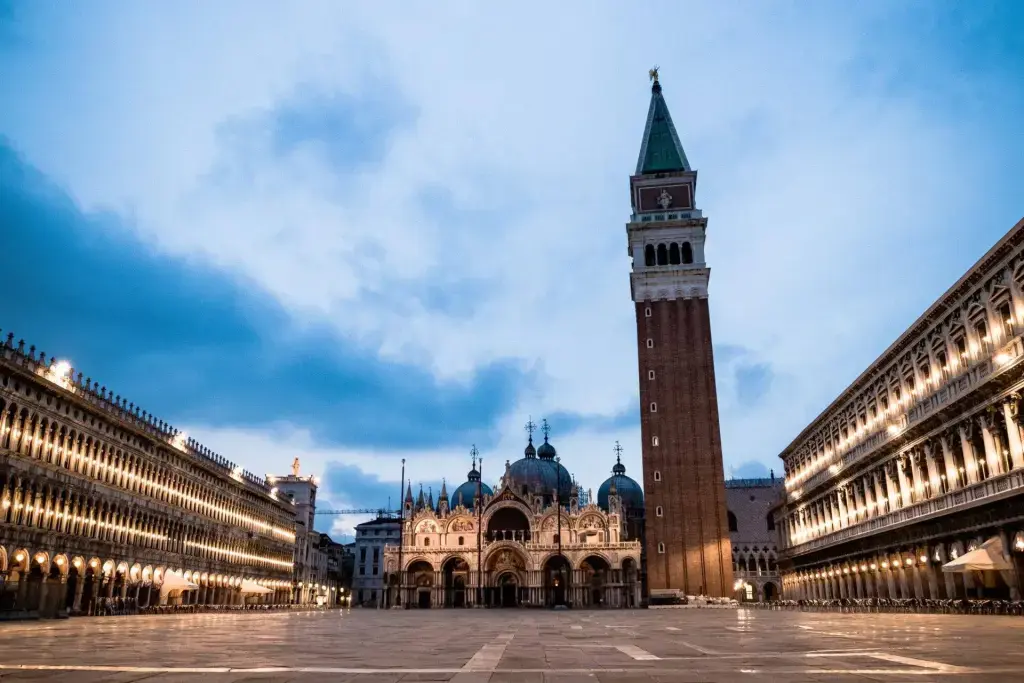
The Doge’s Palace, majestically perched on the banks of the Grand Canal, is the symbol of the power of the Republic of Venice.
The rooms of the Senate and the Council Chamber are a real eye-catcher. In this palace, visitors discover Renaissance art, wander through former prisons and cross the mythical Bridge of Sighs.
This palace was the residence of the Doges for almost 1,000 years, bearing witness to the city’s splendor…
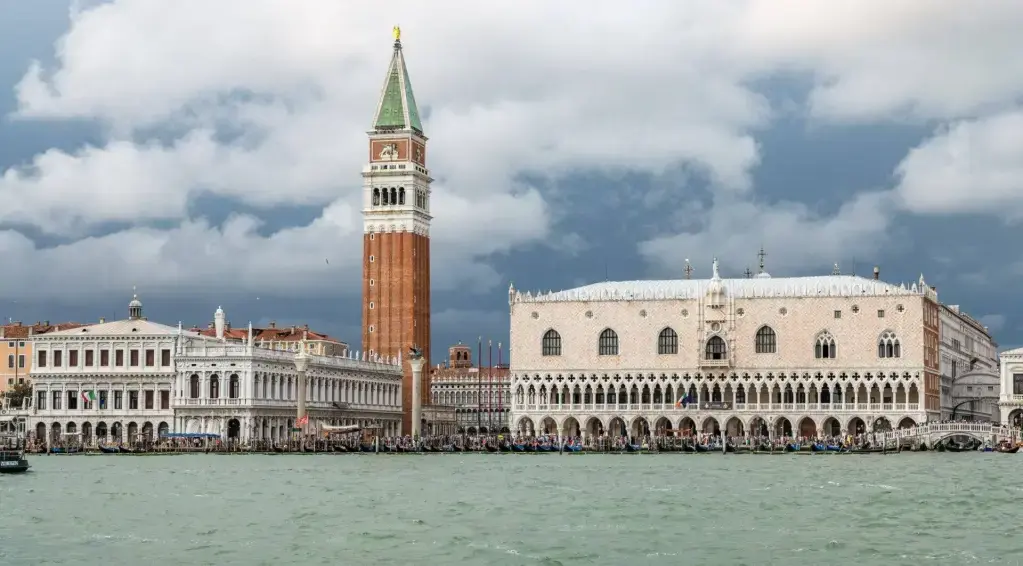
At the heart of St. Mark’s Square, St. Mark’s Basilica stands proudly with its Byzantine domes and sparkling mosaics.
The sculptures and treasures of the Pala d’Oro can be admired here. Visitors can climb up into its galleries, from where the view over the square is breathtaking.
Some of the basilica’s mosaics date back to the 11th century: a jewel in Venice’s artistic heritage?
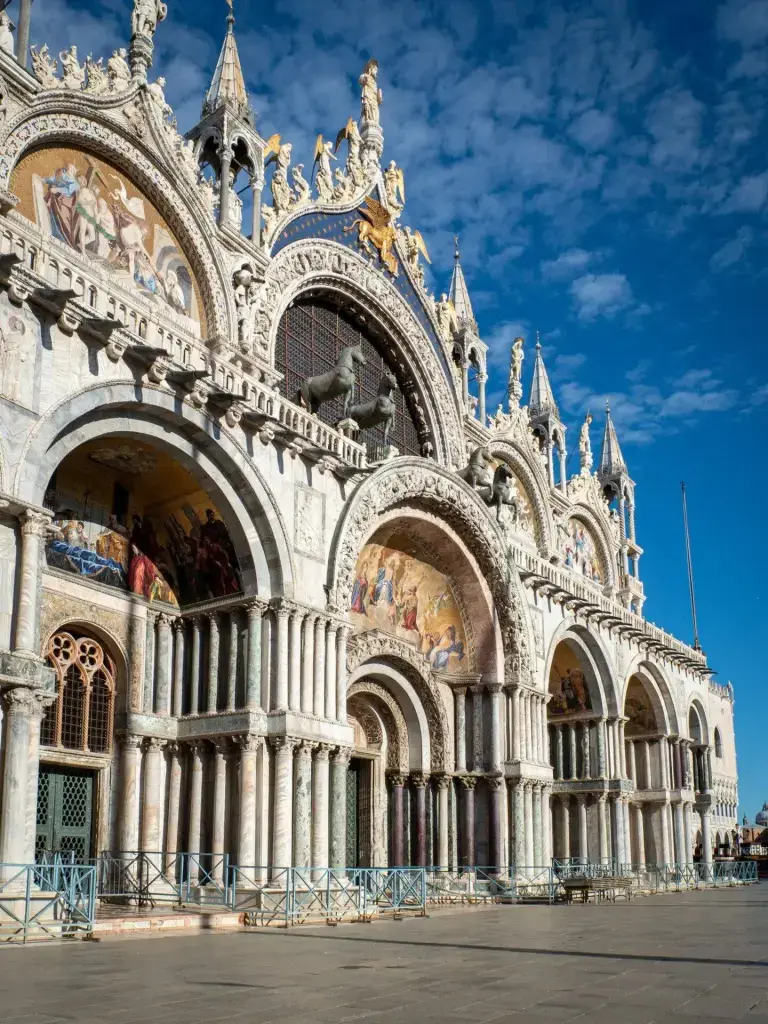
The Grand Canal winds its way through Venice, like a great artery linking the north and south of the city.
Palaces and museums line its shores. Day and night, gondolas and vaporettos cruise along, offering visitors picturesque views of the city.
Hey Yupers! Did you know that: The Grand Canal is Venice’s main artery, measuring some 3.8 kilometers in length?
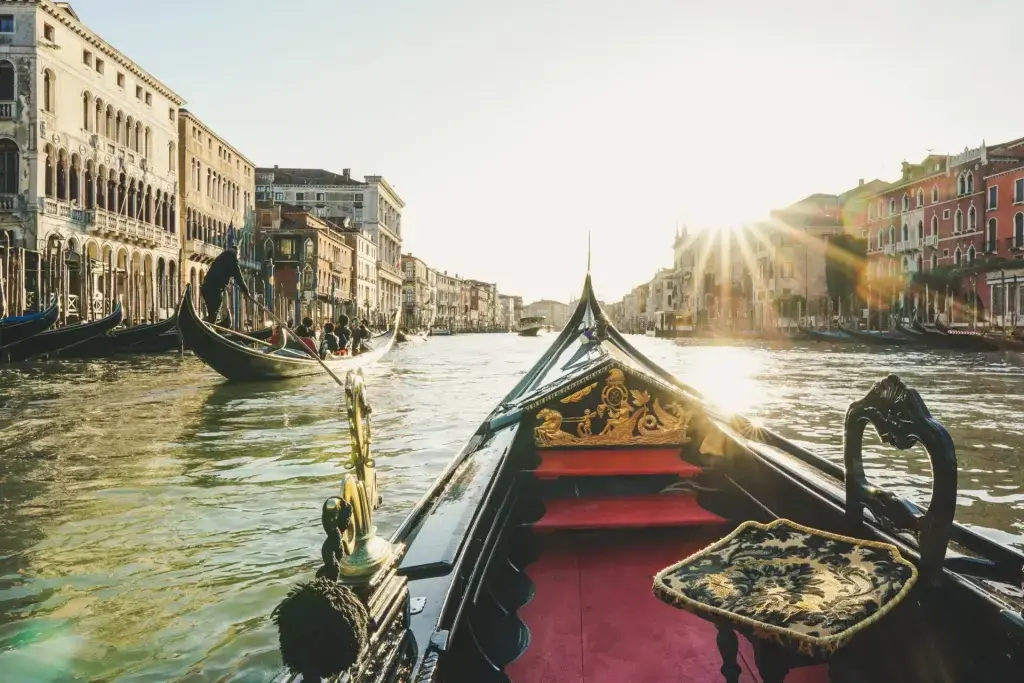
Stretching boldly across the Grand Canal, the Rialto Bridge is the oldest and most famous of Venetian bridges.
Traditional stores adorn both sides. Passers-by can buy souvenirs or simply enjoy the panoramic view.
History: originally made of wood, the Rialto Bridge collapsed several times before being rebuilt in stone in 1591.
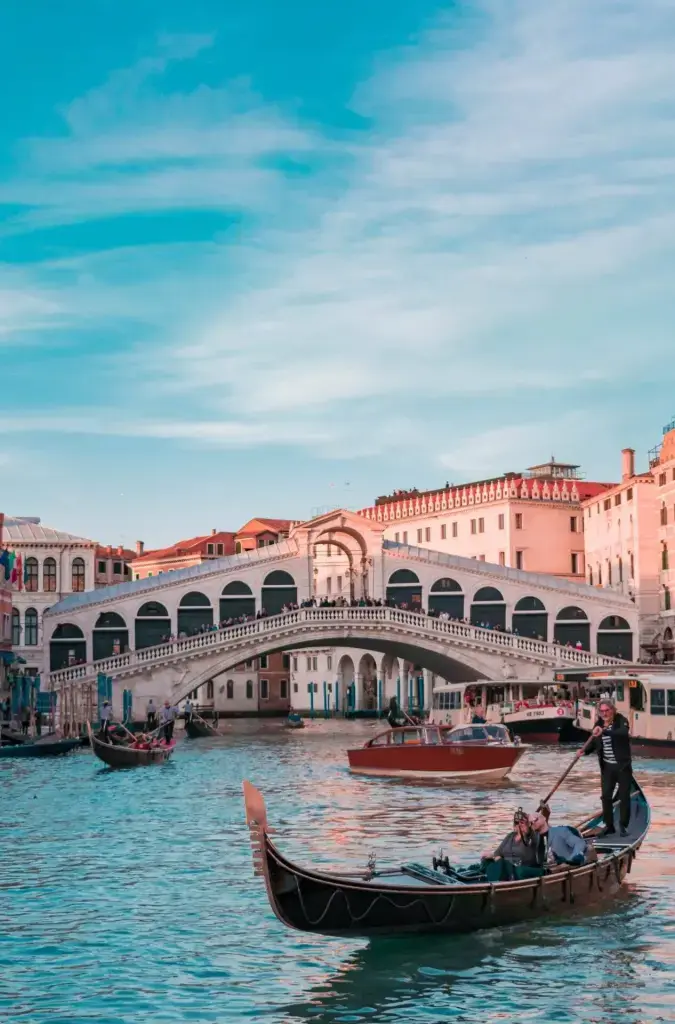
Nestled on the banks of the Grand Canal, Venice’s Gallerie dell’Accademia is brimming with Venetian art treasures.
Works by Titian, Veronese and Tintoretto dominate. Art lovers will marvel at these masterpieces, tracing the artistic evolution from the Renaissance to the Baroque period.
Special feature: the museum is housed in a former convent, combining religious architecture with artistic marvels.
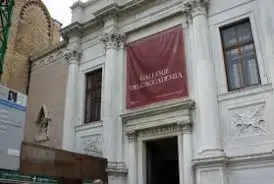
Murano, north of Venice, is a constellation of islands linked by bridges.
Murano blown glass is world-renowned. Artisan workshops invite you to discover the magic of glass transformation, and some even offer demonstrations.
The art of glassblowing in Murano dates back to the 8th century and is still universally recognized and appreciated.
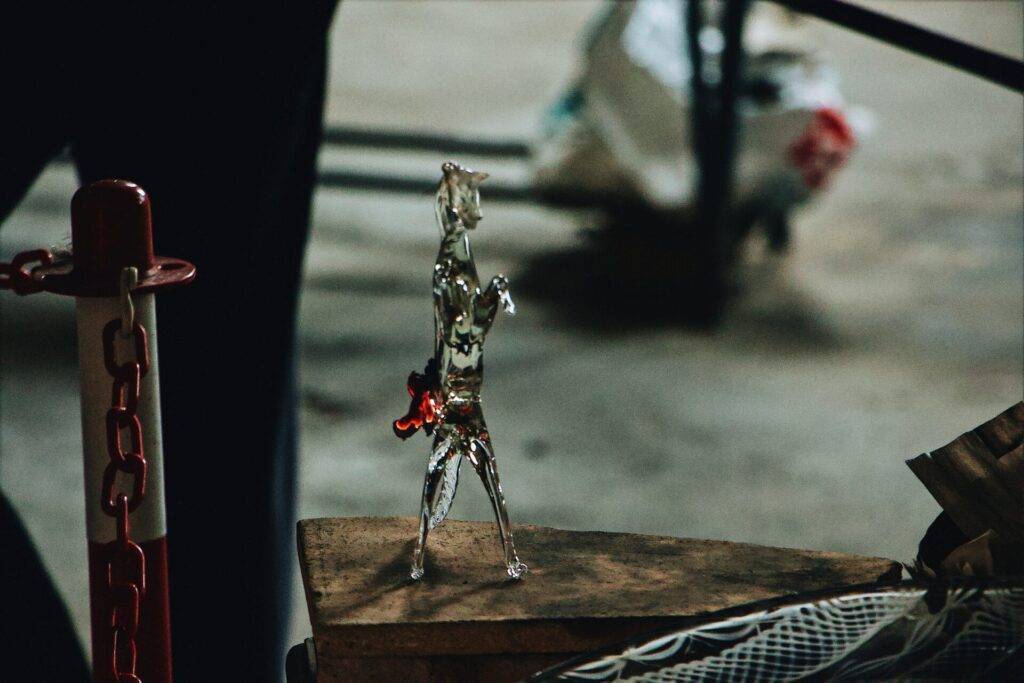
Burano, a small pearl in the Venetian lagoon, is known for its brightly-colored houses lining the canals.
Fine handmade lace is a centuries-old tradition here. Visitors stroll through its picturesque alleyways, admiring the shimmering facades and lace workshops.
According to legend, the houses were painted in bright colors to help fishermen recognize them in the fog…
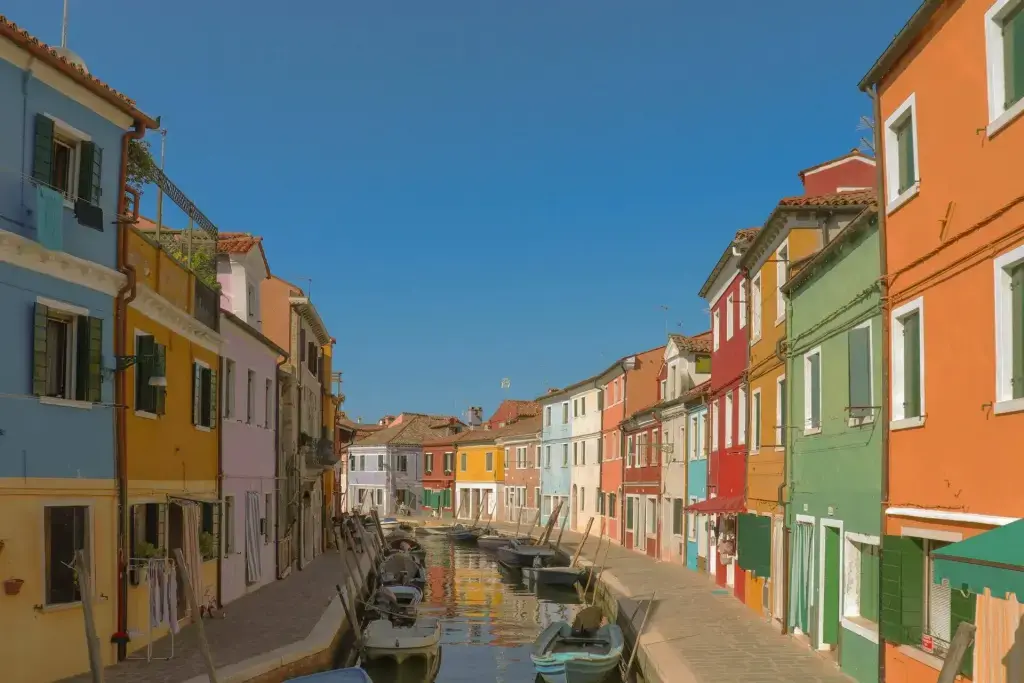
Linking the Doge’s Palace to the prisons, the Bridge of Sighs is shrouded in mystery and melancholy in Venice.
It offers a last view of the city to the prisoners. Tourists contemplating it from the Pont de la Canonica often feel a poignant emotion, imagining the sighs of the captives of yesteryear.
It takes its name from the sighs of the prisoners who, crossing it, caught their last glimpse of Venice’s beauty.
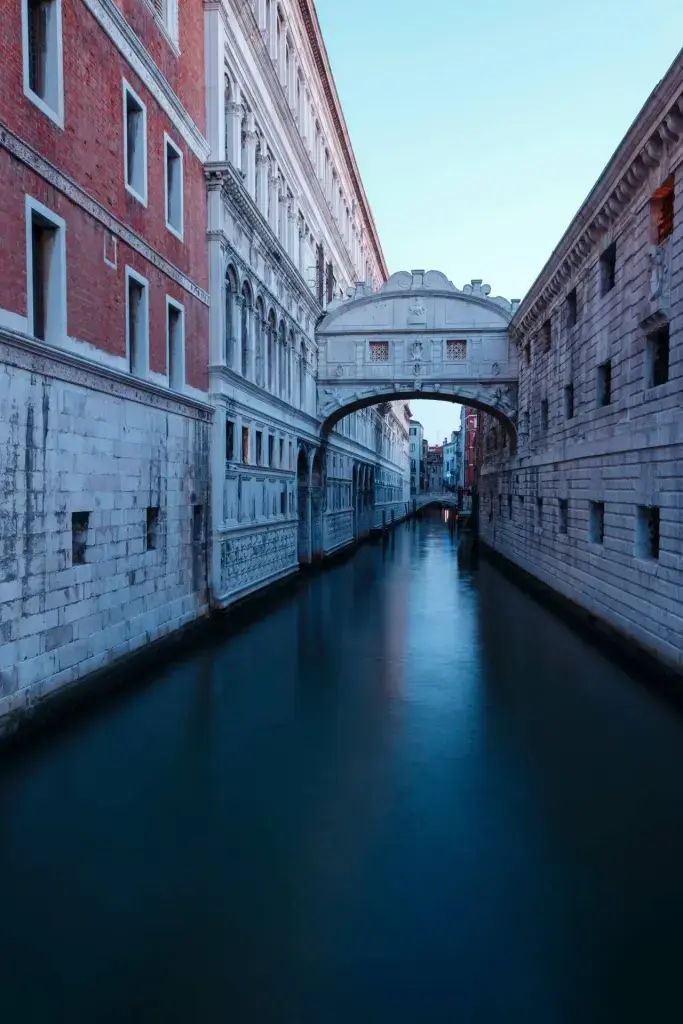
In the San Marco district, the La Fenice Opera House shines like a phoenix, a symbol of resilience and rebirth. Prestigious operas are performed here.
It’s a place where music and drama intertwine, dazzling visitors with its architectural grandeur.
Hey Yupers! Did you know that La Fenice, which means “the phoenix”, was rebuilt twice after being destroyed by fire?
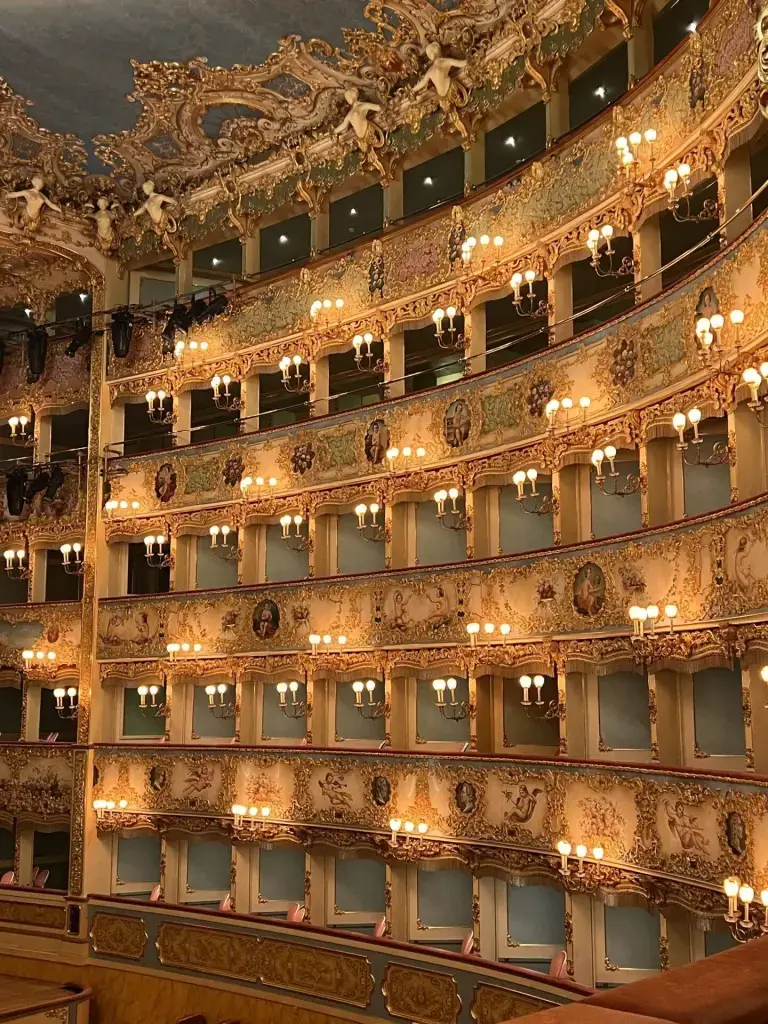
In Piazza San Marco, the Correr Museum is a window on Venetian history and the arts. He exhibited works by Bellini and Canova, among others.
The museum also reveals the daily life of Venice through the ages, thanks to its varied collections.
It owes its name to Teodoro Correr, a Venetian nobleman who bequeathed his collection to the city in 1830?
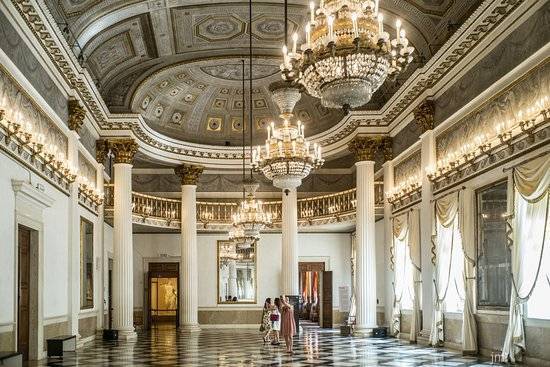
Erected at the entrance to the Grand Canal, the Basilica of Santa Maria della Salute is a Baroque masterpiece celebrating the end of the plague.
Its majestic dome and precious marbles make it a landmark. Inside, visitors can marvel at paintings by Titian and Tintoretto.
Its construction was a wish of the Republic of Venice, in gratitude for the end of the plague epidemic in 1630?
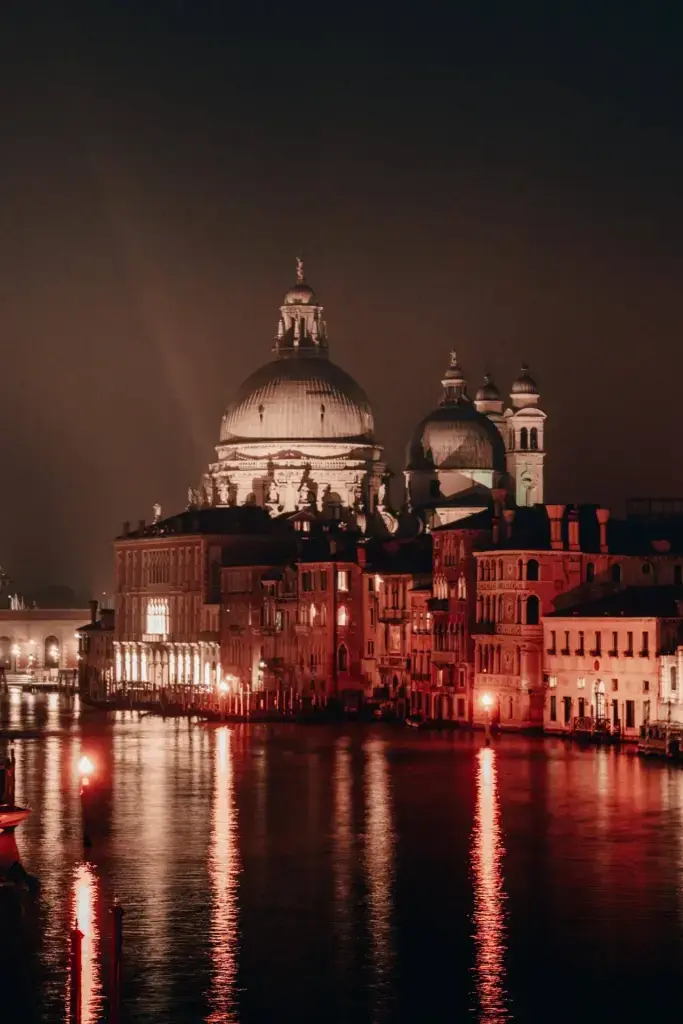
Palazzo Ca’ Rezzonico
Situated on the banks of the Grand Canal, Ca’ Rezzonico is a sumptuous Venetian palace converted into an 18th-century Venetian museum. Tiepolo’s frescoes are particularly noteworthy.
The rooms recreate the opulent atmosphere of Baroque Venice, with its works of art and furnishings.
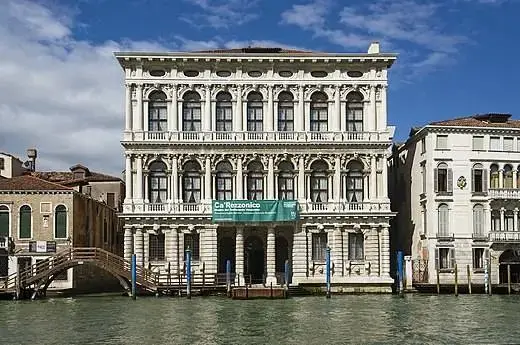
The Venice Arsenal
The Venetian Arsenal, once the beating heart of Venetian naval power, is a vast complex of shipyards and warehouses.
From here, imposing ships set out to conquer the seas! Today, visitors can still feel the excitement of the past, while exploring its historic buildings and exhibits.
At the height of its glory, the Arsenal employed almost 16,000 people, producing one ship a day.
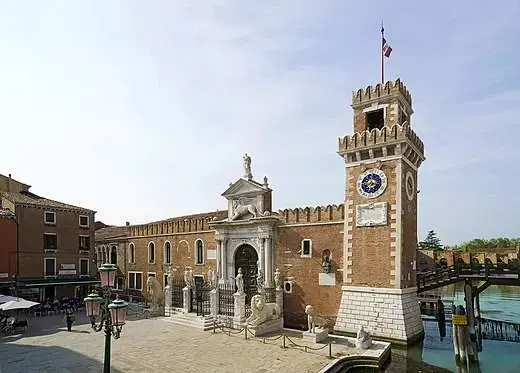
Overlooking the Grand Canal, Ca’ d’Oro (meaning “Golden House” in Venetian dialect), also known as Palazzo Santa Sofia, is a jewel of Venetian Gothic architecture.
Its marble facade, once gilded, reflects the undulating waters of the canal.
Today, it’s an art museum housing the Franchetti collection, with works by Andrea Mantegna and other masters.
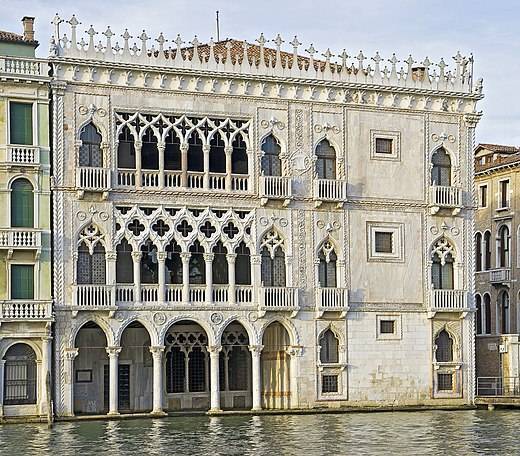
Facing St. Mark’s Square, the church of San Giorgio Maggiore sits on its own island, designed by the architect Palladio. Its campanile offers a panoramic view of Venice.
Inside, it houses some magnificent works, notably by Tintoretto. This church is a perfect example of Venetian Renaissance architecture, combining Gothic and classical elements.
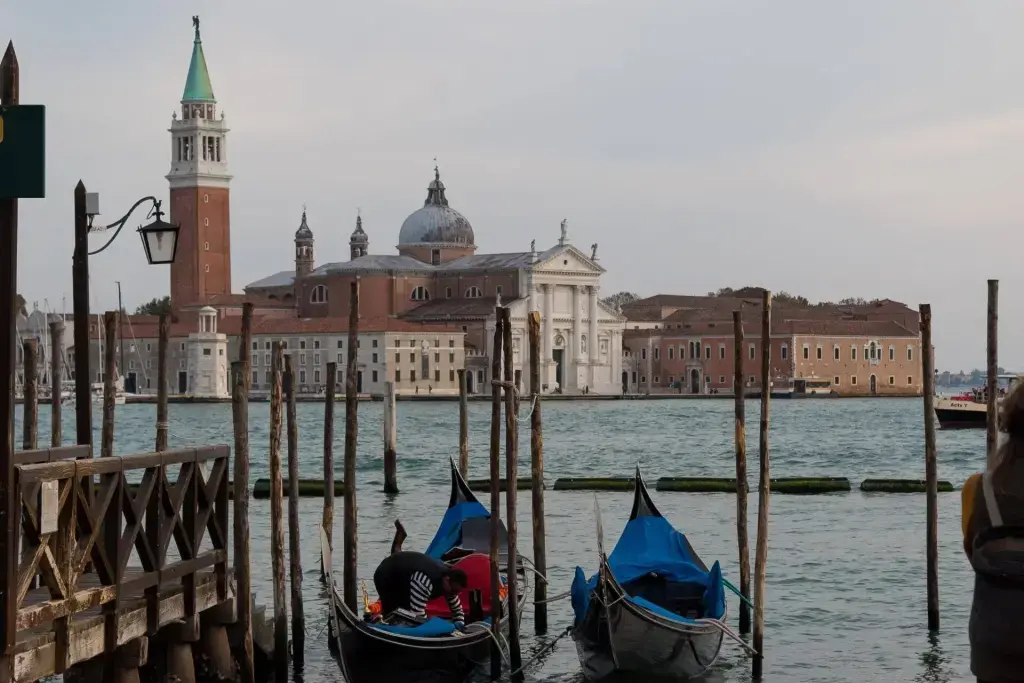
The Venice Lido is a narrow strip of land separating the Venetian lagoon from the Adriatic Sea. Golden sandy beaches and art deco villas line this elegant resort.
This is also where the famous Venice Film Festival is held every year.
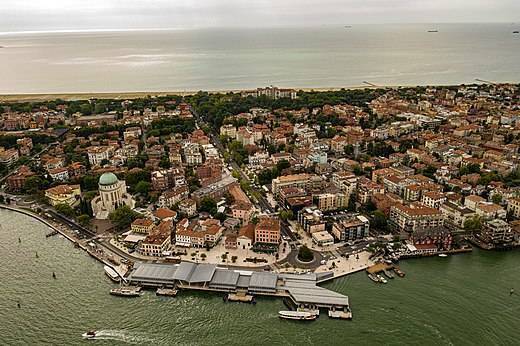
Located in the heart of Venice, Teatro Goldoni is a cultural jewel, dedicated to the performing arts since the 18th century.
Its red velvet and gilding recall the golden age of Italian theater.
Plays, operas and ballets are performed here, paying tribute to great names such as its namesake, the playwright Carlo Goldoni.
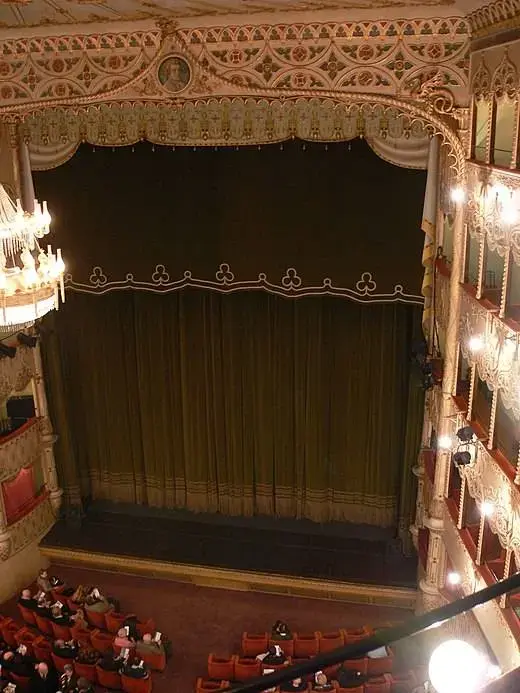
In the heart of St. Mark’s Square, the Clock Tower, also known as Torre dell’Orologio, rises majestically above passers-by.
Firstly, close to St. Mark’s Basilica and the Campanile, this historic tower is an essential part of the Venetian panorama. Secondly, it houses an incredible clockwork mechanism that has been telling Venetians the time, the day, the lunar phase and the signs of the zodiac for centuries. Tourists can visit it to discover its mechanism and enjoy a splendid view.
Anecdote: every year on Epiphany, a parade is held under the Tower to celebrate the arrival of the Magi, and the clock plays a central role in this celebration.
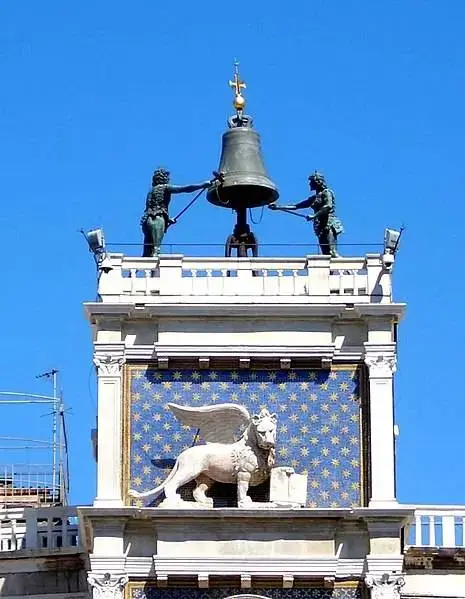
To the north of Venice lies the Cannaregio district, bordered by the Grand Canal on one side and the lagoon on the other.
Firstly, it’s surrounded by picturesque canals, ancient bridges and narrow streets that breathe authentic Venetian life. Then there’s the Jewish Ghetto, the Strada Nova market and the Madonna dell’Orto church. There, travelers can immerse themselves in the local atmosphere, away from the tourist crowds, while sampling culinary specialties in small osterias.
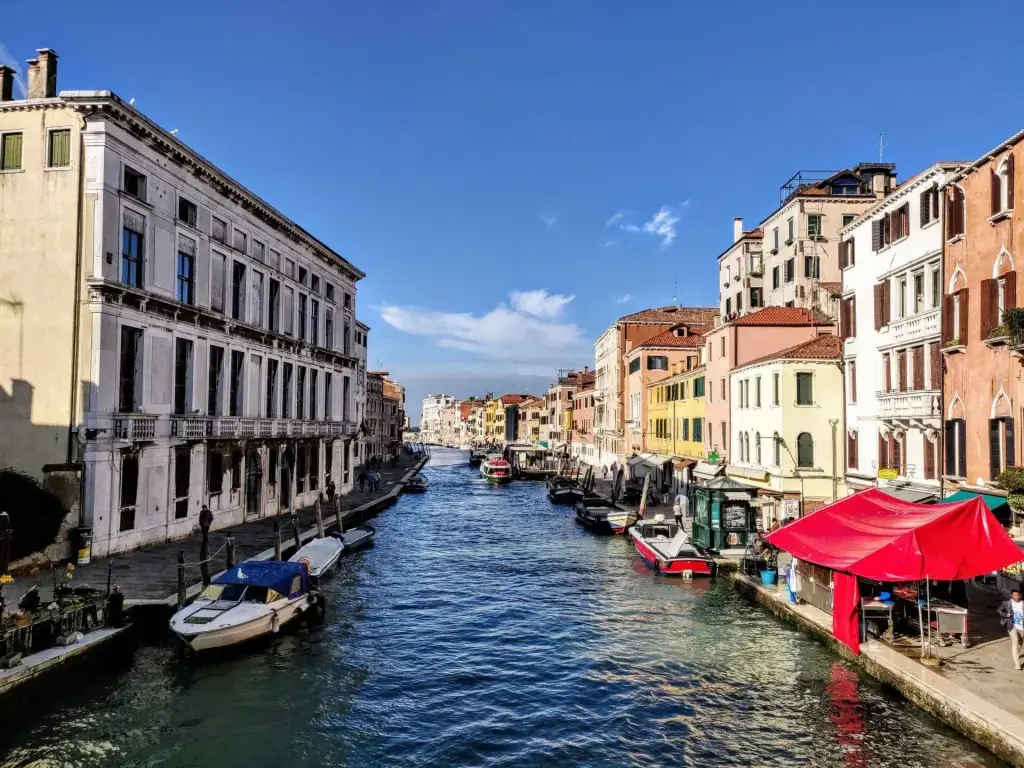
Do you have any questions?
Our teams are here to advise you!

4,3/5 on Trustpilot

Certified partners

Human & committed service

Customized offer

Optimal coverage